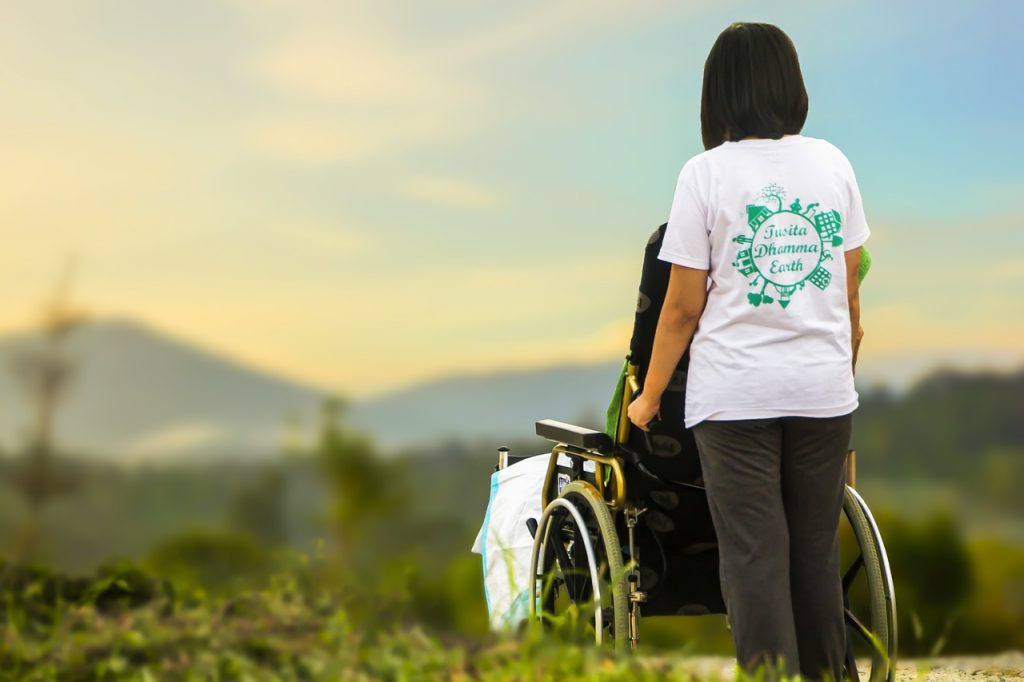Find Elderly Caregivers Near Me – Your Trusted Source

What services do elderly caregivers provide?
Elderly caregivers provide a range of services, including assistance with daily activities like bathing, dressing, and meal preparation. They also offer companionship, medication reminders, light housekeeping, transportation to appointments, and can help with mobility support.
Introduction
As our loved ones age, it becomes increasingly important to ensure they receive the care and support they need to maintain their quality of life. This can be an emotional and challenging journey for families, especially when dealing with conditions like Alzheimer’s disease. But with the right guidance and information, you can find the perfect elderly caregiver for your loved one. In this comprehensive guide, we’ll walk you through the process of finding trusted elderly caregivers and provide valuable insights to help you make informed decisions.
Understanding the Need for Elderly Care
As we age, our daily needs change, and many seniors require additional support to maintain their independence and well-being. Elderly care services are designed to meet these unique needs, providing assistance with daily activities, personal care, and companionship. This is especially important for those with chronic medical conditions, disabilities, or cognitive impairments. By having access to professional caregivers, your loved ones can receive the personalized care they need to live safely and comfortably in their own homes or in a supportive group home environment.
The Benefits of Elderly Care
Elderly care offers numerous benefits for seniors and their families. Professional caregivers can provide the necessary assistance with daily tasks, such as bathing, dressing, and meal preparation, allowing seniors to maintain their independence and dignity. Caregivers also offer companionship and emotional support, which can be particularly important for seniors who live alone or have limited social interactions. Additionally, elderly care can help prevent accidents and falls, manage medication, and provide prompt medical attention when needed, ultimately improving the overall health and well-being of seniors.
Evaluating Your Loved One’s Care Needs
The first step in finding the right elderly caregiver is to assess your loved one’s specific care needs. Consider their personal care requirements, daily activities they may need assistance with, and any medical conditions or disabilities they may have, including the need for physical therapy. This evaluation will help you determine the level and type of care required, whether it’s in-home care, a group home, respite care, or companion care.
When assessing your loved one’s needs, it’s essential to have an open and honest conversation with them and other family members. Discuss their preferences, concerns, and goals for their care. This communication will help you create a care plan that prioritizes their well-being and ensures everyone is on the same page.
Exploring Elderly Care Options
There are various elderly care options available, each with its own benefits and considerations. In-home care allows seniors to receive care and support in the comfort of their own homes, maintaining a sense of familiarity and independence. In-home caregivers can assist with daily tasks, provide companionship, and offer medical support as needed for older adults.
Group homes, on the other hand, provide a communal living environment with additional assistance and amenities. Seniors in group homes benefit from socialization opportunities, shared activities, and around-the-clock care. This option is particularly suitable for seniors who require more extensive care or who enjoy the company of others.
Respite care offers short-term relief for primary caregivers, allowing them to take a break or attend to other responsibilities. This type of care can be provided in-home or at a residential facility and is an excellent option for caregivers who need temporary support.
Companion care focuses on providing socialization and assistance with daily activities. Companion caregivers offer emotional support, engage in conversation and activities, and help with light housekeeping and errands. This type of care is ideal for seniors who primarily need companionship and minimal assistance.
Choosing the Right Elderly Caregiver
When evaluating potential caregivers or group homes, consider factors such as their qualifications, experience, and communication skills. It’s essential to choose someone who is compassionate, reliable, and trustworthy. Take the time to interview potential caregivers, ask for references, and trust your instincts when making a decision.
During the interview process, ask questions about their experience, training, and approach to caregiving. Inquire about their availability, flexibility, and emergency protocols. It’s also important to discuss your loved one’s specific needs and preferences to ensure the caregiver is a good fit.
If you’re considering a group home, schedule a visit to the facility and observe the environment, staff interactions, and overall atmosphere. Ask questions about their care philosophy, daily routines, and amenities. It’s also a good idea to speak with current residents and their families to get a firsthand perspective on the quality of care provided.
Financial Considerations and Legal Aspects
Navigating the financial implications and legal aspects of elderly care is crucial. Research the costs associated with different care options and explore payment methods, such as long-term care insurance, Medicaid, or private pay. It’s essential to have a clear understanding of the expenses involved and to create a budget that works for your family.
In addition to financial planning, it’s important to ensure that your loved one’s legal documents, such as power of attorney and advance directives, are in order. These documents outline their wishes regarding medical care, financial decisions, and end-of-life preferences. Having these legal matters settled can provide peace of mind and ensure that your loved one’s wishes are respected.
Transitioning to Elderly Care
Making the transition to elderly care can be an emotional and challenging process for both seniors and their families. It’s essential to approach this transition with patience, open communication, and a focus on your loved one’s well-being. Prepare your loved one for the change by discussing the benefits of care, addressing any concerns they may have, and providing reassurance and support throughout the process.
To help make the transition smoother, consider involving your loved one in the decision-making process as much as possible. Allow them to express their preferences and concerns, and work together to find solutions that prioritize their comfort and happiness. It’s also important to maintain open lines of communication with the caregiver or group home staff to ensure a seamless transition and ongoing support.
Maintaining Quality of Life
Finding the right elderly caregiver is just the first step in ensuring your loved one’s well-being. It’s crucial to continue monitoring their care and quality of life to ensure they are receiving the support they need. Regular check-ins with your loved one and their caregiver can help identify any concerns or adjustments that need to be made at the end of the scheduled shift. This is a crucial aspect of caregiver time management and ensures the highest level of care for your loved one.
Encourage your loved one to maintain their hobbies, interests, and social connections as much as possible. Engaging in meaningful activities and maintaining a sense of purpose can significantly improve their overall happiness and well-being. Work with the caregiver or group home staff to create a care plan that incorporates your loved one’s preferences and promotes their physical, emotional, and cognitive health.
Success Stories and Real-Life Experiences
Hearing success stories from other families who have navigated the process of finding elderly care can provide reassurance and inspiration. These experiences highlight the positive impact that quality care can have on seniors’ lives and the peace of mind it brings to their families.
One family shared their experience of finding the perfect in-home caregiver for their elderly mother. The caregiver not only assisted with daily tasks but also became a trusted companion, engaging in meaningful conversations and activities that brought joy to their mother’s life. Another family found a group home that provided a warm and welcoming environment for their father, who thrived in the social atmosphere and received attentive care from the staff. Making the decision about in-home care for a loved one is never easy, but finding the right answers can help you feel more comfortable with the options available and confident in your final decision. That’s why Caregiving Experts provide prospective clients and their families with a complimentary, no obligation in home care needs assessment.
These success stories demonstrate the importance of finding the right fit for your loved one’s needs and preferences. They also showcase the dedication and compassion of caregivers who go above and beyond to ensure the well-being of the seniors they serve.
Conclusion
Finding the right elderly caregiver for your loved one is a journey that requires careful consideration, research, and compassion. By understanding your loved one’s needs, exploring the available care options, and making informed decisions, you can prioritize their well-being and quality of life.
Remember to approach this process with patience, open communication, and a focus on your loved one’s happiness and comfort. Surround yourself with a support system of family, friends, and professionals who can offer guidance and assistance throughout the journey.
As you embark on this path, keep in mind that finding the right caregiver is an ongoing process. Regular check-ins, communication, and adjustments may be necessary to ensure your loved one continues to receive the best possible care, including 24 hour live-in care for continuous support and around-the-clock peace of mind. With the right support and dedication, your loved one can continue to live a fulfilling life, surrounded by love and compassion.
If you’re looking for a comprehensive resource to help you find elderly care group homes near you, consider using the Group Homes App. With their iOS and Android apps, you can easily search for and compare group homes in your area, read reviews from other families, and find the perfect care solution for your loved one. Take the first step in ensuring your loved one receives the care and support they deserve.


